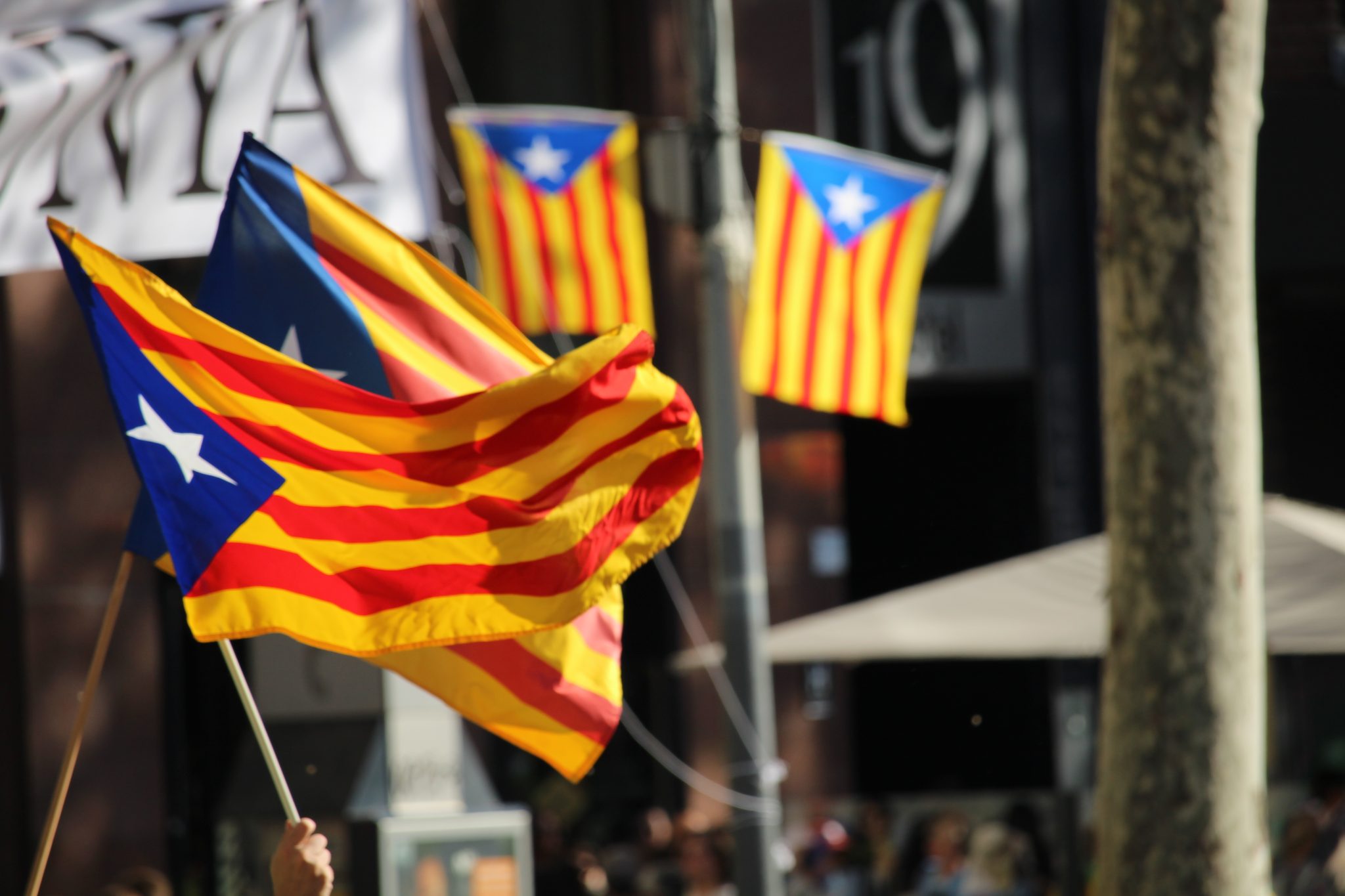Prof. John Doyle, Director IICRR, Dublin City University
The images of masked police seizing ballot boxes throughout Catalonia on 1 October, shocked even the firmest opponents of the independence referendum and have raised fundamental questions about how democracies should manage “internal” demands for secession. While opinion polls in recent years have suggested that Catalans by a large majority believe they have the right to hold a referendum and the right to independence, the great majority of polls suggested that by a slim majority they would decide to remain in Spain. However the Spanish state has a strong track record of rejecting the principle of secession for its autonomous regions, even if in practice such regions would not leave.
As the Basque conflict was winding to a conclusion, there was a forthright rejection of any suggestion that Basque nationalists would have the right to self determination acknowledged, in return for a public declaration that under this right of self-determination they had ‘determined’ to remain in Spain. Even on pragmatic measures such as having international observers confirm the destruction of ETA’s weapons – following the Northern Ireland model – the Spanish state refused to cooperate in any way, insisting that its own national security forces and military would have to perform this task, notwithstanding the complete absence of trust in them on the Basque side.
Catalonia by comparison to the Basque Country has a long record of peace in post dictatorship Spain and until recent years the demands of Catalans for autonomy and linguistic rights seemed capable of being acknowledged and resolved within the Spanish constitutional context, even if there were on-going demands for greater autonomy on the one hand and complete independence by some.
However it would be foolish to assume that the relative stability of post-dictatorship Spain and Catalonia and their democratic consolidation makes a deep constitutional crisis and even conflict impossible. In comparative conflict analysis it is always challenging to distinguish the relevant features of multiple cases, which lead to common outcomes, and those contextual features which make every conflict or near conflict distinct. Autonomy for example in some cases has ended conflicts and resulted in long-term stable peace. In other cases autonomy has been just a first step towards independence, often preceded by a further conflict.
Even in consolidated democracies it is very challenging to analyse the probable impacts of establishing institutions in autonomous regions or nations. At the time of the Scottish Parliament referendum in 1997, the Scottish Labour Party supported a Yes vote, as they believed it would meet most Scottish people’s desires for change and weaken Scottish nationalism. The Scottish National Party called for a Yes vote, as they believed the institutions of a Scottish Parliament would strengthen the case for further devolution and independence. Even now it is uncertain which was correct, but what seems certain is that even though the UK Parliament retains the right to reverse the experiment and close down the Scottish Government, to do so now would almost certainly lead to a crisis and ultimate independence.
There are lessons therefore from the international experience for the current crisis over Catalonia. A recent study of 324 groups in more than 100 countries from 1960 to 2000, by two US based academics Siroky and Cuffe, presents fairly convincing evidence that formerly autonomous groups are the most likely to secede, and that both currently autonomous and never autonomous groups are much less likely. [1] The Spanish government may see a short-term advantage in closing down its troublesome government in Catalonia and avoiding a formal declaration of independence. However while fortune telling is not the role of researchers, the evidence suggests that the probability of secession will rise dramatically if they do so. Already one prominent Unionist in Northern Ireland, Christopher Stalford, member of the Northern Ireland Assembly for the DUP, has compared the 1 October police to the police attacks on civil rights protestors in Northern Ireland in 1968 and 1969.[2]
Dialogue is essential but finding an appropriate means will be challenging. Notwithstanding some success in the Serbia-Kosovo talks in recent years.[3] It is unlikely the European can perform this task, given Spain’s status as a member state. It was impossible for the EU as an institution to play any significant role in Northern Ireland, due to Britain’s objections, even if the context of membership helped in many ways.[4] Without that dialogue, the revoking of autonomy is likely to start a process that will then be difficult to control and is based on comparable cases, statistically likely to lead to independence.
[1] David S. Siroky and John Cuffe ‘Lost Autonomy, Nationalism and Separatism’,
Comparative Political Studies 2015, 48(1): 3–34. http://journals.sagepub.com/doi/abs/10.1177/0010414013516927
[2] http://www.bbc.com/news/uk-northern-ireland-41518256
[3] Visoka, Gëzim and John Doyle (2016) ‘Neo-Functional Peace: The European Union Way of Resolving Conflicts’. Journal of Common Market Studies, http://onlinelibrary.wiley.com/doi/10.1111/jcms.12342/full (open access)
[4] Doyle, John (1999). “Governance and Citizenship in contested states: the Northern Ireland peace agreement as internationalised governance”, Irish Studies in International Affairs, 10: 201-219. http://doras.dcu.ie/518/ (open access)




